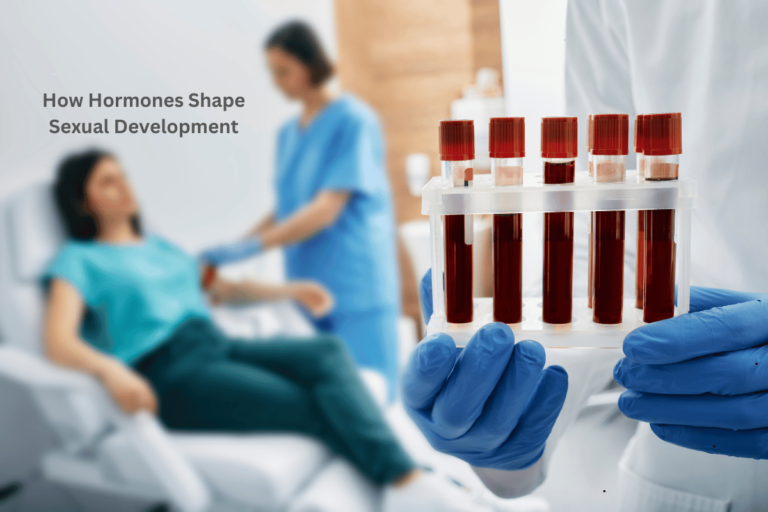Screening Tests For Women
Stay proactive in women's health by prioritizing screening tests. These tests catch potential issues early and aid in preventive care. Mammograms are essential for breast cancer detection, while Pap smears detect cervical abnormalities. HPV testing helps prevent cervical cancer, and bone density tests assess skeletal health. Regular blood pressure and cholesterol checks are critical for cardiovascular wellness. By understanding and monitoring these screenings, you empower yourself in maintaining good health. Further information on these tests can provide valuable insights for your well-being.
Key Takeaways
- Regular screening tests detect health issues early.
- Mammograms are crucial for early breast cancer detection.
- Pap smears identify cervical abnormalities.
- HPV testing aids in early detection of high-risk strains.
- Bone density tests assess skeletal health for osteoporosis.
Importance of Screening Tests
Screening tests play an essential role in detecting potential health issues early, allowing for timely intervention and improved outcomes. In the domain of preventive medicine and health promotion, these tests are crucial for women's wellness and preventive care. Regular screenings can help identify risk factors or early signs of various health conditions, enabling healthcare providers to intervene promptly and effectively. By participating in recommended screening tests, you actively engage in proactive health management, contributing to the prevention and early detection of diseases.
Women's wellness relies heavily on preventive care measures, and screening tests serve as valuable tools in this regard. These tests are designed to catch health concerns in their initial stages when treatment is often more successful. By prioritizing regular screenings as part of your healthcare routine, you demonstrate a commitment to proactive health maintenance and empower yourself with knowledge to make informed decisions about your well-being. Remember, prevention is crucial in maintaining optimal health and well-being.
Understanding Mammograms
Prioritize your breast health by gaining a thorough understanding of mammograms, a key tool in early detection and monitoring of breast cancer. Mammograms play an important role in breast health by screening for abnormalities in breast tissue. Regular mammograms are essential for early detection of breast cancer, which is important for successful treatment and improved outcomes. Here is a table summarizing key information about mammograms:
| Aspect | Information | Importance |
|---|---|---|
| Screening Frequency | Recommended every 1-2 years for women over 40 | Regular screenings aid in early detection |
| Procedure | X-ray imaging of breast tissue | Detects potential abnormalities |
| Preparation | Avoiding lotions and deodorants before the exam | Ensures accurate results |
| Follow-up | Additional tests if abnormalities are detected | Ensures thorough evaluation |
Understanding these aspects of mammograms can help you take proactive steps in maintaining your breast health and engaging in cancer prevention. Regular screenings are a cornerstone of early detection and effective cancer prevention strategies.
Overview of Pap Smears
To understand the importance of regular Pap smears in maintaining your reproductive health, it's essential to grasp the role they play in early detection of cervical abnormalities. Pap smears, also known as Pap tests, are vital in screening for cervical cancer and identifying any precancerous changes in the cervix.
The American College of Obstetricians and Gynecologists (ACOG) recommends that women begin regular Pap smear screening at the age of 21, with subsequent screenings every 3 years for women aged 21-29. For women aged 30-65, ACOG recommends Pap smears every 3 years or a combination of Pap smear and HPV testing every 5 years. However, individual guidelines may vary, so it's important to consult with your healthcare provider about the most suitable screening schedule for you.
Benefits of HPV Testing
When contemplating HPV testing, it's essential to recognize its high accuracy in detecting the virus.
This test plays a vital role in preventing cervical cancer by identifying high-risk HPV strains early on.
Understanding the significance of early detection through HPV testing empowers women to take proactive steps in safeguarding their health.
HPV Testing Accuracy
Ensuring accuracy in HPV testing provides essential insights into early detection and prevention of cervical cancer. The advancement of new HPV testing technologies and future developments play a significant role in enhancing the accuracy of screening. For instance, these technologies aid in reducing false negatives, improving overall detection rates. Additionally, understanding HPV vaccine effectiveness is crucial in preventing cervical cancer. Here is a table summarizing the significance of HPV testing accuracy:
| Benefits of HPV Testing Accuracy | Description | Importance |
|---|---|---|
| Early Detection of HPV Infections | Identifying infections early can prevent cancer development | High |
| Reduced False Negatives | Decreases the chances of missing HPV infections | Moderate |
| Enhanced Prevention of Cervical Cancer | Enables prompt intervention and treatment | High |
Preventing Cervical Cancer
Advancing HPV testing technologies not only enhances accuracy but also plays a vital role in preventing cervical cancer by enabling early detection and intervention.
Cervical cancer prevention primarily involves HPV vaccination, which helps protect against the most common types of HPV that can lead to cervical cancer.
Additionally, lifestyle factors such as avoiding smoking and practicing safe sex can reduce the risk of developing cervical cancer.
Understanding your risk factors and staying up to date with regular screenings and HPV testing are key components of preventing cervical cancer.
Early Detection Importance
Enhance your cervical cancer prevention strategy by prioritizing the benefits of HPV testing for early detection.
Human Papillomavirus (HPV) testing plays an essential role in identifying high-risk strains of HPV that can lead to cervical cancer. Genetic predisposition and lifestyle factors can increase your susceptibility to HPV infection. By recognizing these risk factors early through HPV testing, you can proactively discuss preventive measures and treatment options with your healthcare provider.
Early detection through HPV testing allows for timely interventions, such as close monitoring or prompt treatment, reducing the chances of cervical cancer development.
Stay informed about the importance of HPV testing in your routine screenings to safeguard your cervical health and well-being.
Guide to Bone Density Tests
Considering your bone health, scheduling a bone density test can provide valuable insights into your skeletal strength. Osteoporosis prevention and treatment are vital aspects of maintaining bone health, making bone density tests an essential tool in evaluating your risk. These tests measure the density of your bones, helping to diagnose osteoporosis and evaluate fracture risk. Additionally, focusing on bone health and nutrition plays a significant role in preventing bone-related issues. Ensuring an adequate intake of calcium, vitamin D, and other essential nutrients can support bone strength and overall health.
| Benefits of Bone Density Tests | Importance |
|---|---|
| Helps diagnose osteoporosis | Early detection is key for effective treatment |
| Evaluates fracture risk | Guides preventive measures |
| Monitors bone density changes over time | Allows for personalized interventions |
It is recommended to discuss the results of your bone density test with your healthcare provider to understand your bone health status better and develop a plan to maintain or improve it.
Exploring Blood Pressure Checks
When it comes to your health, understanding the importance of monitoring your blood pressure is key. Regular blood pressure checks can help identify any potential issues early on and allow for proper management.
Knowing the normal ranges and what they mean for your overall health is essential in maintaining your well-being.
Importance of Monitoring
Regular blood pressure checks are essential for monitoring your health and detecting potential issues early on. By monitoring progress and tracking changes in your blood pressure readings, you can identify any deviations from the normal range promptly.
Consistent follow-up with blood pressure checks offers long-term benefits by allowing healthcare providers to intervene early if hypertension or other cardiovascular issues arise. These routine checks provide valuable insights into your cardiovascular health and overall well-being.
Understanding Normal Ranges
To effectively interpret the results of your blood pressure checks, it's essential to understand the normal ranges associated with this important health indicator. Lab results provide essential information about your blood pressure levels. The interpretation of these results is key in determining whether your blood pressure falls within a healthy range.
Test accuracy is important for reliable readings. Normal blood pressure typically falls below 120/80 mm Hg. Elevated blood pressure ranges from 120-129/<80 mm Hg. Stage 1 hypertension is indicated by readings of 130-139/80-89 mm Hg, while Stage 2 hypertension is 140/90 mm Hg or higher.
Understanding these ranges can help you monitor your health effectively and take necessary steps to maintain healthy blood pressure levels.
Role of Cholesterol Screening
Cholesterol screening plays an important role in evaluating your risk for cardiovascular disease and guiding preventive measures. Managing cholesterol levels is essential in reducing the risk of heart disease and stroke. High cholesterol levels can lead to the buildup of plaque in your arteries, increasing the risk of atherosclerosis and other cardiovascular complications. Understanding your cholesterol levels and risk factors is necessary for early intervention and prevention.
Risk factors for high cholesterol include a diet high in saturated fats, lack of physical activity, smoking, obesity, and genetics. Regular cholesterol screenings can help identify elevated cholesterol levels and allow for timely intervention through lifestyle modifications or medication. By monitoring your cholesterol levels and managing them effectively, you can lower your risk of heart disease and improve your overall health.
It is recommended to discuss your cholesterol management plan with your healthcare provider to tailor it to your individual needs. Remember, cholesterol screening is a valuable tool in evaluating your cardiovascular health and taking proactive steps towards a healthier future.
Conclusion
So, now you understand the significance of screening tests for women. Remember, these tests can help identify potential health issues early on, leading to better outcomes.
While it may seem challenging, the benefits far outweigh any discomfort or inconvenience. Take control of your health and schedule your screenings today to make sure you're proactive in maintaining your well-being.
Your future self will thank you for taking this important step towards a healthier life.







